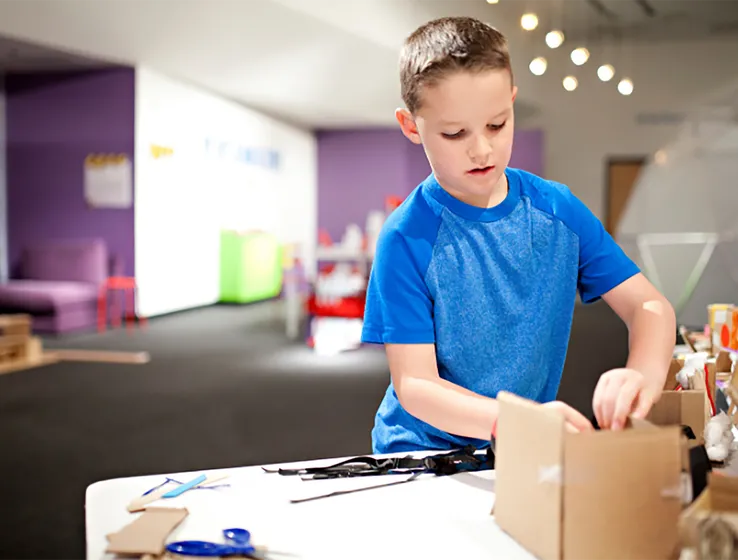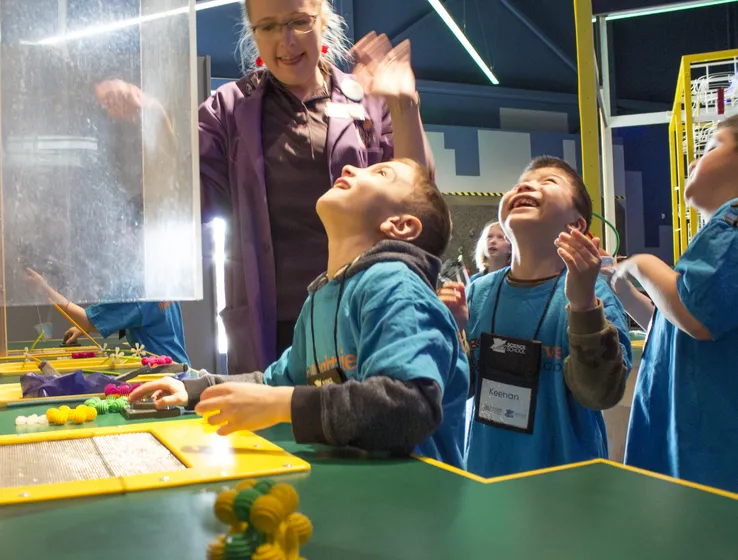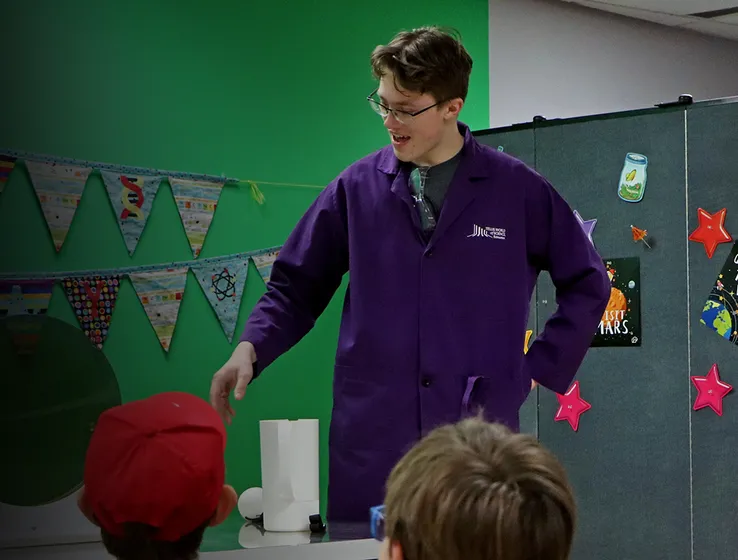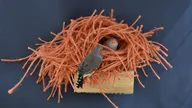Why I Became A Psychologist Who Studies Animals
Posted:
A guest post by Dr. Lauren Guillette, TWOSE Science Fellow, for Science Literacy Week 2020. Lauren discusses why she became a psychologist who studies animals and her favourite science books.
My name is Dr. Lauren Guillette and I am an Assistant Professor of Comparative Cognition and Behaviour in the Department of Psychology at the University of Alberta. I am a Psychologist, but I also majored in Anthropology – due to me wanting to be the next Indiana Jones, but that is not this blog post. I am the leader of the Animal Cognition Research Group. My team and I ask questions that are psychological but deeply rooted in biology and ecology. For example, we want to know if and how birds learn to build their nests. We also study why animals (mostly birds, but sometimes insects) seem to vary in their ability to learn, just as humans do! We currently maintain a colony of zebra finches to experimentally test these questions.
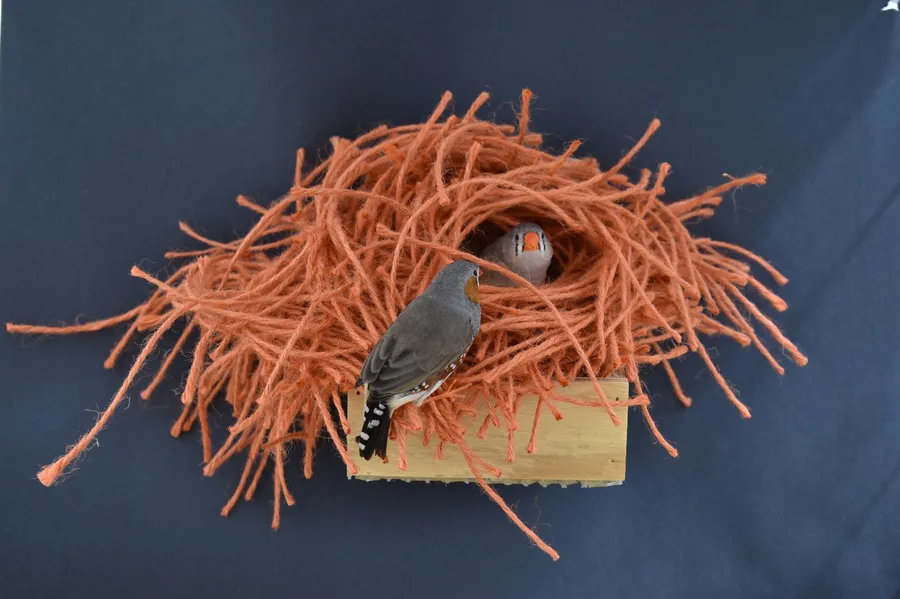
When the male zebra finch (orange cheek patches) builds his first nest, he copies the colour that other males use (photo credit: Andrés Camacho Alpìzar).
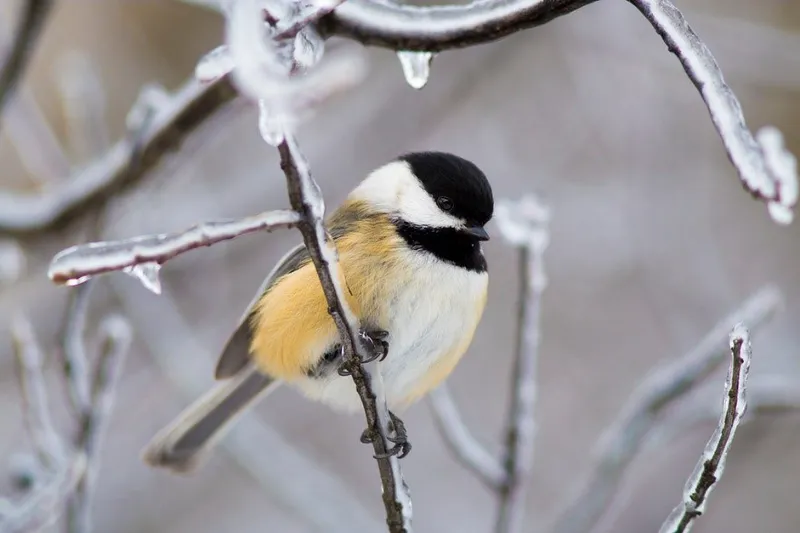
"Icy Chickadee" by davejdoe (CC BY 2.0)
I grew up on a lake in the woods (thanks mom and dad!) and have always been surrounded and inspired by nature. I feel very lucky to live in Edmonton with our river valleys and you can find me in Jasper or Banff National Park at least once a month. Nature recharges me. While I am in nature I watch animals and I find myself asking ‘how does that animal know how to do that?!?’
You don’t have to go all the way to Jasper or work in a laboratory with zebra finches to watch animals - you can do it in your back yard! From your balcony, in a local park, or in our glorious river valley. What sorts of animals have you seen in your backyard and what were those animals doing? I sometimes see black-capped chickadees store non-perishable food, like seeds, in cracks in a tree or under a roof shingle. These chickadees are caching (hiding) food that they will eat throughout our extreme Northern winters.
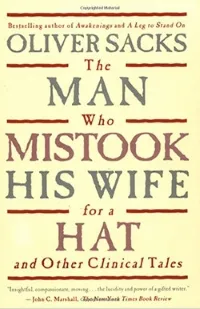
The Man Who Mistook His Wife for a Hat, by Oliver Sacks
My love of psychology was sparked in a psychology class that I took during my senior year of high school. It was not my text book, but rather popular science books that got me hooked. I had to know why we (humans) did the things we do! To this day I can remember the three books that were most influential in me pursuing a major in psychology. The first was written by Oliver Sacks, a professor of neurology at NYU who has written 16 popular science books! The man who mistook his wife for a hat is a series of case histories of patients with different neurological disorders. I dare you to put this book down once you start it.
Similarly, during my first year of University I read The Boy Who Couldn’t Stop Washing by Dr. Judith Rapoport, this book is a collection of case histories of folks that are battling obsessive-compulsive disorders. Around that same time I also read The Bell Jar by Silvia Plath, a semi-autobiographical novel that deals with clinical depression/bipolar disorder.
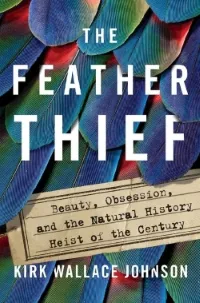
The Feather Thief by Kirk Wallace Johnson
Most of the popular science books that I have read in the past few years deal with my current field of study – animal cognition. I am very lucky that many non-academic folks are interested in the lives and minds and behaviour of animals which, in part, leads scientists to write about these topics. Here are a few that I love: Animals in Translation (2005) by Temple Grandin; The Genius of Birds (2016) by Jennifer Ackerman; Are We Smart Enough to Know How Smart Animals Are? (2017) by Frans de Waal.
This last book is not about animal cognition, but I am enamored with it: The Feather Thief: Beauty, Obsession, and the Natural History Heist of the Century by Kirk Wallace Johnson. This book has everything: the exploits of biologist and explorer Alfred Russel Wallace, true crime, classical music, fly-tying, and human greed.
Dr. Lauren Guillette
Recipient of the 2020 Telus World of Science – Edmonton Science Fellowship Award
Assistant Professor of Comparative Cognition and Behaviour, Department of Psychology, University of Alberta
Lastly – when asked about my favourite and most influential science books I naturally reached out to my friends, colleagues, and students on twitter (find me @laurenguillette). I am lucky and have science pals from around the world and from many different backgrounds – so please enjoy the diversity of their suggestions. Happy exploring and reading! Please visit this goodreads bookshelf to see these suggestions: http://bit.ly/SciLitSuggestions
Related Articles

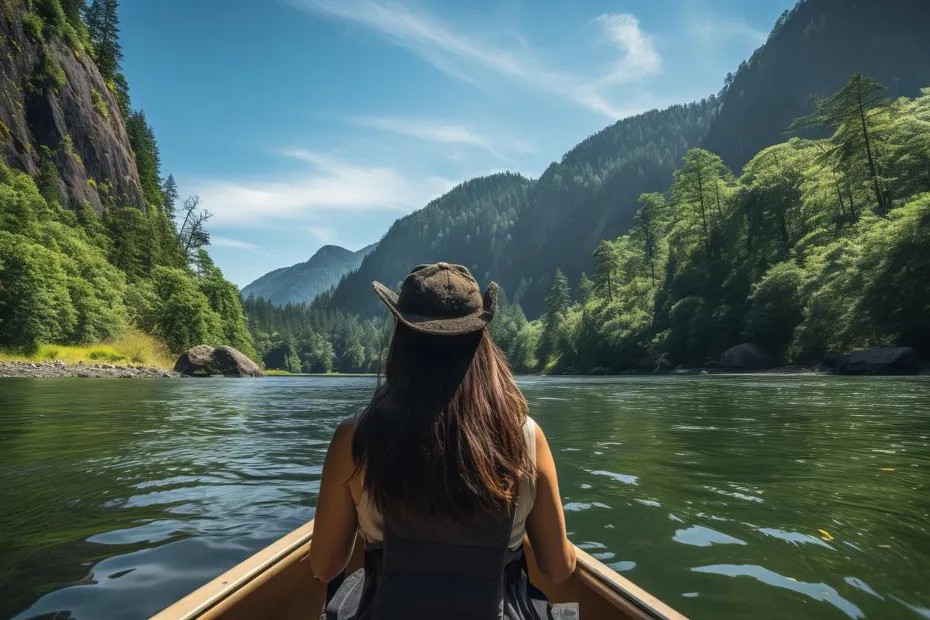
Food Chain Reactions
How Climate Change is Impacting Canada's Lakes

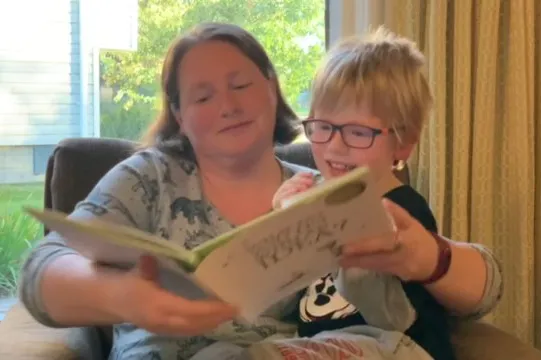
#TWOSEreads
A collection of book recommendations from our staff in celebration of Science Literacy Week 2020.

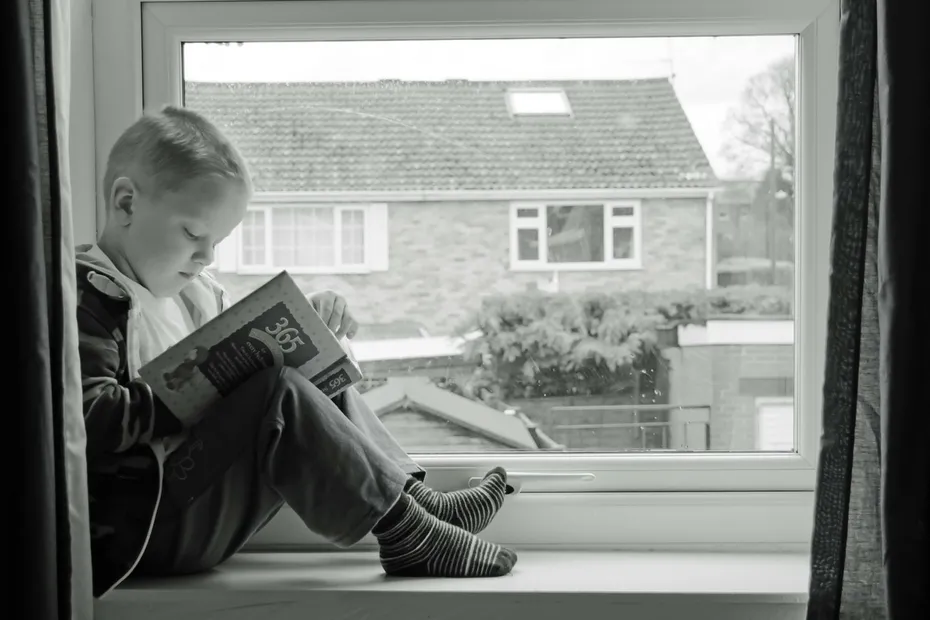
Our Favourite Science Books
A collection of book recommendations from our Science Staff in celebration of Science Literacy Week.
Related Articles


Food Chain Reactions
How Climate Change is Impacting Canada's Lakes


#TWOSEreads
A collection of book recommendations from our staff in celebration of Science Literacy Week 2020.


Our Favourite Science Books
A collection of book recommendations from our Science Staff in celebration of Science Literacy Week.
